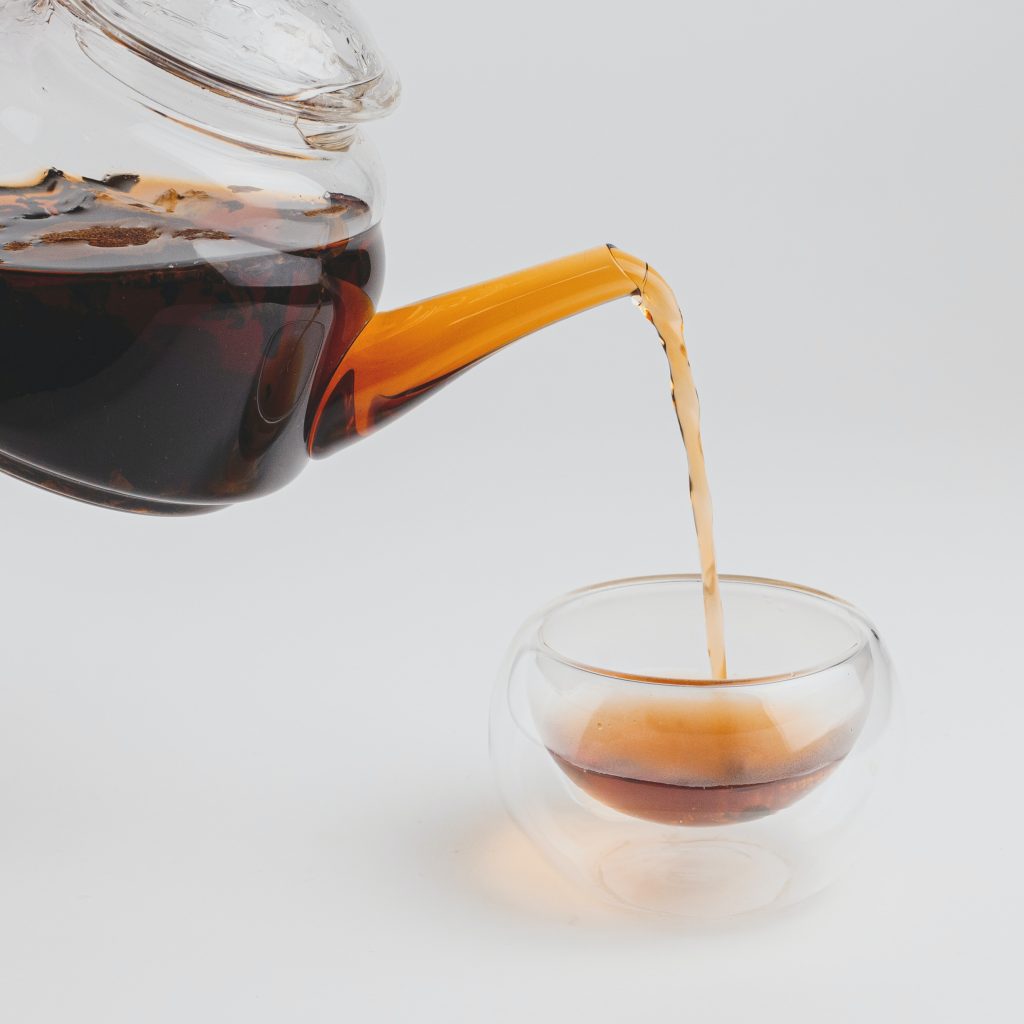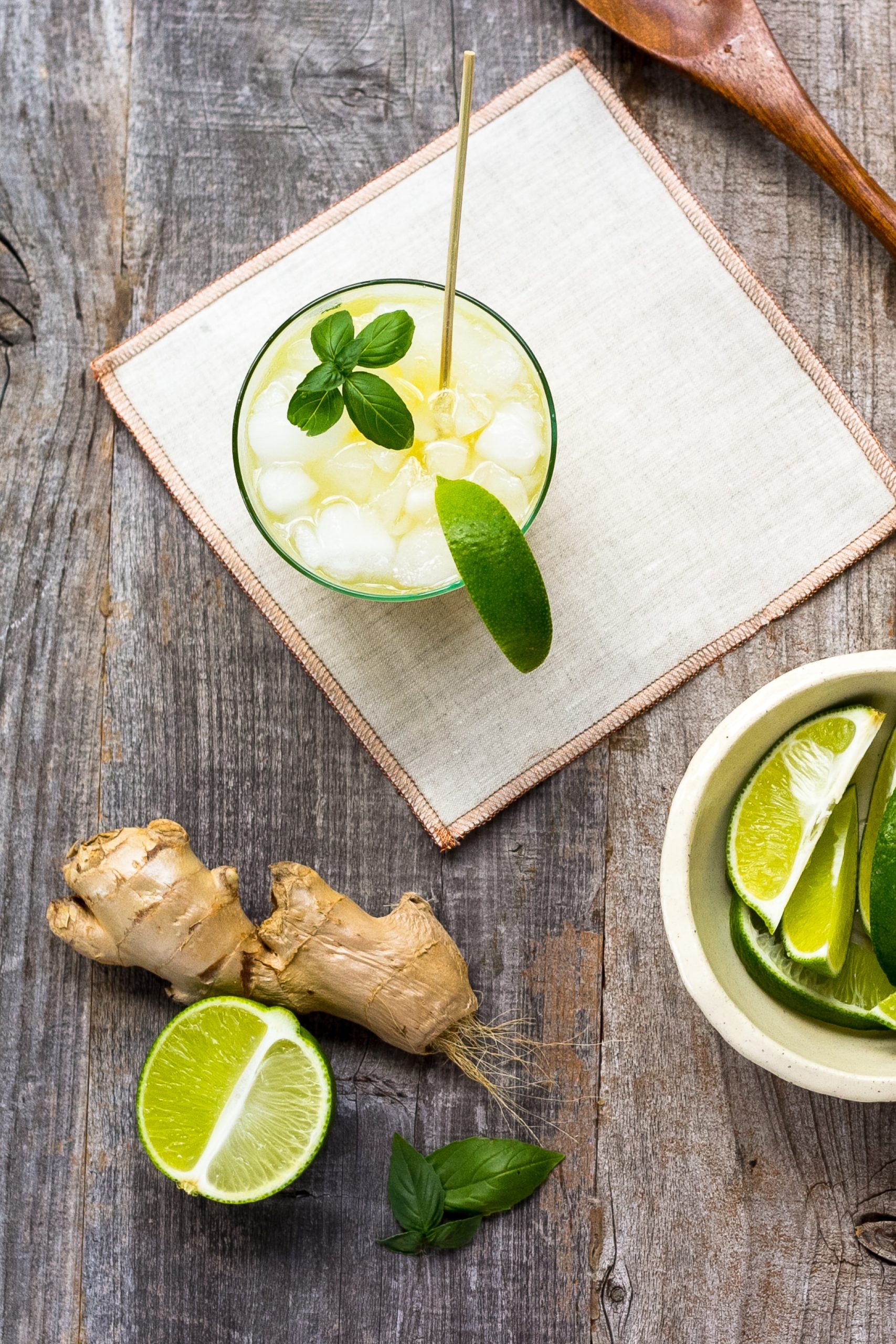When cold and flu season hits, finding relief for your cough and cold symptoms can feel overwhelming. With a multitude of over the counter cough medications available, why not consider a natural option? Enter the humble cup of tea. This article explores how tea can help soothe your cough symptoms, touching on all your favourite herbal teas and even some unexpected ones.

Photo by Brittany Colette on Unsplash
How Can Tea Help Reduce Cough and Cold Symptoms?
Drinking hot tea often during a cold or flu can do wonders to reduce cough and ease cold and flu symptoms. Consuming a warm liquid, such as tea, can help soothe the throat and loosen mucus, providing comfort during a cough or cold. A warm tea not only soothes a sore throat but employing the right type of tea can also help with congestion and cough relief.
Benefits of Drinking Tea During Cold and Flu Season

Photo by petr sidorov on Unsplash
Tea leaves, especially from true teas like green tea and black tea, are rich in antioxidants that boost your immune system, helping you fight off cold and flu viruses. These true teas are made from the Camellia sinensis plant, which is known for its rich antioxidant content and health benefits. Tea is a great natural cough suppressant, making it one of the best teas for cough and cold relief.
The Role of Herbal Teas in Alleviating Cough and Congestion
Herbal tea, particularly peppermint tea, is beneficial in relieving congestion. Brewing tea with fresh peppermint leaves can maximize the menthol content and provide even greater relief from congestion. The menthol in peppermint tea may help clear nasal passages, making it the best tea for a cough and cold symptoms.
How Certain Types of Tea Can Help with Sore Throat
Herbal teas like chamomile tea and licorice root tea can help soothe your sore throat thanks to their natural anti-inflammatory properties. Chamomile tea helps by soothing throat inflammation, promoting relaxation, and supporting restful sleep, which can be beneficial when dealing with a cough. Marshmallow root tea is also effective for this purpose, thanks to its protective film that coats the irritated throat itself, easing discomfort.
What Are the Top 5 Teas for Soothing a Cough?

Photo by Kim Daniels on Unsplash
With various kinds of tea available, finding the best teas for cough can seem daunting. These teas provide many health benefits, including immune support and relief from various cold and flu symptoms. Look no further; we have compiled the best herbal teas for your coughing needs.
Exploring the Best Herbal Teas for Cough Relief
Herbal teas like chamomile, ginger, and marshmallow root are known to treat coughs effectively. Marshmallow root tea can soothe a sore throat, while ginger tea, with its expectorant properties, can help with a productive cough. Combining these with your favourite herbal tea can lead to a powerful brew against cough.
Brewing tea at the right temperature and steeping for the correct amount of time ensures you extract the maximum health benefits from the herbal ingredients, such as white tea.
The Benefits of Licorice Root Tea for Coughs
Licorice root tea, with its natural sweet and earthy flavour, is derived from the licorice plant, a key ingredient in traditional herbal medicine. The tea is known for its distinctive, slightly bitter taste, which complements its natural sweetness and health benefits. Not only in warm water tastes good but can act as a natural cough suppressant. Additionally, like marshmallow root tea, it can form a protective, soothing coating on the throat.
Why is Honey Tea Considered Among the Best Teas for Cough?
Honey tea, particularly when combined with lemon, is among the best teas for cough. It’s a go-to home remedy, drinking hot tea is known to suppress coughs better than some over-the-counter cough drops.
How Can Green and Peppermint Tea Help with Common Cold Symptoms?
Besides herbal teas, traditional teas like green tea and peppermint tea can alleviate cold symptoms. Peppermint oil, a key component of peppermint tea, helps soothe coughs and relieve congestion.
The Effect of Green Tea on Cold Symptoms
Green tea can help in reducing the severity of cold symptoms. Antioxidant-rich green tea acts as an immunity booster, helping your body in its fight against the common cold.
How Peppermint Tea Helps with Congestion and Cold
Drinking peppermint tea can help alleviate congestion. The menthol present in it acts as a decongestant, providing relief from throat pain.
Combining Green and Peppermint Tea for Maximum Relief
Mixing green and peppermint tea can provide maximum relief from cough and cold symptoms. This mix acts as a double-whammy, with green tea boosting your immunity and peppermint tea clearing your congestion.
What Other Types of Tea Can Help with Flu Symptoms?
Thyme tea, slippery elm tea, and even the humble black tea can be added to your flu-fighting arsenal. Echinacea, recognized by its purple flower, is another herbal tea option valued for its immune-boosting and anti-inflammatory properties. Each of these teas, consumed properly, can provide relief from flu symptoms.
The Power of Ginger Tea in Treating Flu Symptoms
Ginger tea can help in warming your body when flu symptoms hit. Compounds such as gingerol and shoagol are what make ginger tea responsible for its anti-inflammatory and respiratory benefits. Its anti-inflammatory properties help soothe a sore throat, while it can also help clear congestion.
Is Thyme Tea Effective for Cold and Flu Relief?
Thyme tea has been used for centuries as a remedy for respiratory illnesses. Clinical studies have shown that thyme tea can help reduce cough and congestion associated with acute bronchitis. It can help reduce cough and relieve sore throats, qualifying it as one of the best teas for cough and cold symptoms. Additionally, thyme essential oil, when used in diffusers or through inhalation, can provide further respiratory relief and support the benefits of thyme tea.
How Marshmallow Root Tea Can Alleviate Cold and Flu Symptoms
Marshmallow root tea is a perfect beverage for cold and flu relief. Its mucilaginous properties help soothe throat irritation, reducing cough and can provide respite from flu symptoms.
Fruit and Floral Tea Options for Cough and Cold Relief
When you’re battling a cough and cold, fruit and floral teas can be a delicious and effective way to find relief. These teas are not only bursting with flavor, but they’re also packed with nutrients and antioxidants that help support your immune system and soothe a sore throat. Whether you’re looking for a comforting cup to ease cold symptoms or a gentle brew to calm a scratchy throat, fruit and floral teas offer a wide variety of options to help you feel better naturally. Let’s explore how these vibrant teas can help relieve cough and cold symptoms while giving your body all that protective goodness.
Popular Fruit Teas for Soothing Throat and Boosting Immunity
Fruit teas like lemon tea, orange tea, and berry teas are among the best choices when you want to boost your immune system and ease a sore throat. These teas are naturally high in vitamin C, which is essential for fighting off infections and reducing the severity of cold symptoms. Lemon tea, in particular, is a favorite for cough and cold relief—its tangy flavor and high vitamin C content help loosen mucus and soothe throat inflammation. Try adding a few drops of raw honey to your hot lemon tea for extra relief from cough symptoms and to coat your irritated throat. Other fruit teas, such as peach tea and pineapple tea, are also rich in anti-inflammatory properties, making them excellent for reducing throat pain and calming cough and cold symptoms. Drinking these teas regularly can help keep your immune system strong and your throat comfortable during cold and flu season.
The Benefits of Floral Teas Like Chamomile and Hibiscus
Floral teas are another wonderful option for those seeking natural relief from cough and cold symptoms. Chamomile tea is well-known as a natural cough suppressant, helping to ease throat pain and reduce inflammation thanks to its gentle, soothing properties. Sipping on chamomile tea can help calm an irritated throat and make it easier to rest, especially before bedtime. Hibiscus tea, with its vibrant color and tart flavor, is packed with vitamin C and boasts powerful antiviral and antibacterial properties. This makes hibiscus tea a great choice for supporting your immune system and fighting off cold symptoms. Other floral teas, such as rosehip tea and lavender tea, are rich in antioxidant properties, further helping to protect your body and relieve cough and cold symptoms. Whether you choose chamomile tea for its calming effects or hibiscus tea for its immune-boosting benefits, floral teas are a delightful way to care for your health and well-being during cough and cold season.
Best Home Remedies: Combining Tea with Other Methods for Cough and Cold Relief
While drinking tea for a cough and cold recovery is a great start, incorporating other natural remedies can expedite the healing process. Taking a hot shower can help open airways and soothe congestion, making it a useful complement to drinking tea for cough and cold relief.
Incorporating Tea into Your Daily Routine for Cough Relief
Maintaining a consistent tea-drinking routine during flu season can help reduce the likelihood of developing a cold. A hot cup of tea in the morning can kick start your day on a healthy note. Additionally, a soothing cup of herbal tea before bed can reduce cough and help you rest better.
How to Use Tea as Part of a Complementary Treatment Plan
While tea may help with your cold or flu symptoms alone, it’s essential to remember that it should work in conjunction with other treatments. Always consult your healthcare provider for a comprehensive treatment plan to combat your cold and flu symptoms.
Tips for Getting the Most Out of Your Tea Selection for Cough and Cold
Always use fresh tea leaves and steep for the recommended time to maximize its benefits. For herbal teas like ginger or licorice tea, freshly chopping or grating the root before brewing hot water can help release beneficial compounds. Adding a slice of lemon or a pinch of black pepper can also help with nutrient absorption.
Herbal teas such as echinacea and slippery elm tea may help reduce symptoms and duration of respiratory tract infections.
Q: What is the best tea for a cough and sore throat?
A: Ginger tea helps soothe a cough and sore throat due to its anti-inflammatory and antioxidant properties. In addition, green tea is the healthiest and among the best to drink when suffering from a cough or cold. Both teas aid in making it easier to cough up mucus.
### ###
Q: How can lemon tea aid when having a cold?
A: Lemon tea is one of the most beneficial types of tea to relieve your cough and cold symptoms. It’s high in vitamin C, which can aid in reducing the duration of a cold by 58% according to certain studies.
### ###
Q: How does ginger tea help with the symptoms of a cold or the flu?
A: The main compounds in ginger tea are known for their health benefits, a few drops which include anti-inflammatory and antiviral properties. This makes ginger tea a great choice when suffering from a cough, cold, or the flu.
### ###
Q: Can a cup of tea help with a dry cough?
A: Yes, drinking a cup of thyme tea can be beneficial for a dry cough. A study found that drinking thyme tea also has compounds that can help relax the muscles of the throat, thus offering relief from a dry cough.
### ###
Q: What are the benefits of tea for those with bronchitis with a productive cough?
A: Tea, particularly licorice root tea, is a natural cough suppressant and can soothe the mucus membranes in your lungs. This makes it beneficial for those suffering from bronchitis with a productive cough.
### ###
Q: Does any tea assist in relieving cough and cold symptoms?
A: Yes, numerous types of tea, including ginger tea, green tea, and licorice root tea, are beneficial in relieving cough and cold symptoms. Each type of tea contains unique compounds responsible for health benefits.
Q: How does gargling with green tea assist in relieving cough and sore throat symptoms?
A: Green tea contains catechins that have antiviral properties, which can assist in relieving symptoms of a cough or sore throat. Gargling with green tea can particularly help in reducing inflammation and providing soothing relief.
Q: Is there a specific way to prepare ginger tea for a cough and cold symptoms?
A: You can prepare ginger tea by chopping or grating fresh ginger and boiling it in boiling water first. Drinking this tea regularly can help in relieving cough and cold symptoms due to the main compounds in ginger tea that are responsible for health benefits.
Q: What is the correct way to use tea for cough and cold relief?
A: There’s no specific rule for using tea for cough and cold relief. However, enhancing your tea with other beneficial ingredients like honey or lemon juice can increase its effectiveness. It is also important to have warm tea to soothe your throat and reduce congestion effectively.
### ###
Q: Is licorice root tea beneficial for people with productive cough?
A: Yes, licorice root tea is made with herbs known for their antiviral and antimicrobial properties, which can help reduce symptoms of a productive cough. It can soothe the throat and provide relief from the constant need to cough.

